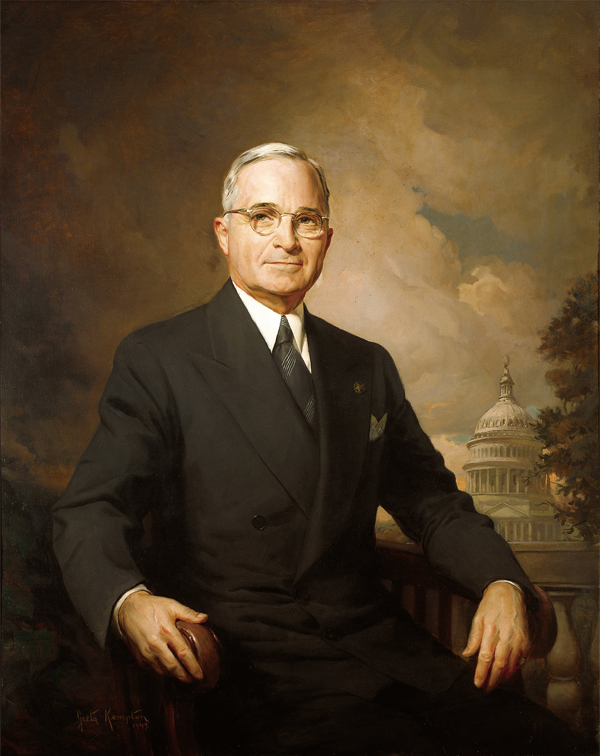
Truman orders army to seize control of railroads on August 25, 1950
Truman orders army to seize control of railroads: On this day in 1950, in anticipation of a crippling strike by railroad workers, President Harry S. Truman issues an executive order putting America’s railroads under the control of the U.S. Army, as of August 27, at 4:00 pm.
Truman had already intervened in another railway dispute when union employees of the Chicago, North Shore and Milwaukee Railway Company threatened to strike in 1948. This time, however, Truman’s intervention was critical, as he had just ordered American troops into a war against North Korean communist forces in June. Since much of America’s economic and defense infrastructure was dependent upon the smooth functioning of the railroads, the 1950 strike proposed by two enormous labor organizations, the Brotherhood of Railroad Trainmen and the Order of Railway Conductors, posed an even greater threat. In July, Truman ordered the formation of an emergency board to negotiate a settlement between the railroad unions and owners. The unions ultimately rejected the board’s recommendations and, by August 25, seemed determined to carry out the strike.
In a public statement that day, Truman insisted that “governmental seizure [of the railroads] is imperative” for the protection of American citizens as well as “essential to the national defense and security of the Nation”. He used the same justification for seizing control of steel plants when the United Steel Workers union struck later in the year.
The railroad strike lasted for 21 months. Finally, in May 1952, the Brotherhood of Railroad Trainmen, the Order of Railway Conductors and another union, the Brotherhood of Locomotive Firemen and Enginemen, accepted the Truman administration’s terms and went back to work.
History Channel / Wikipedia / Encyclopedia Britannica / Biography / Truman Library
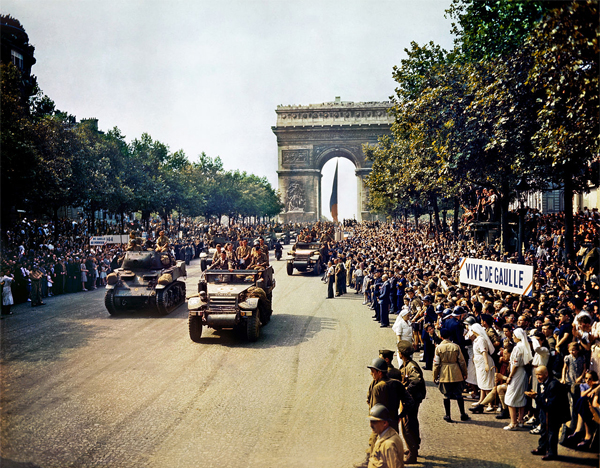
Liberation of Paris on August 25, 1944
Liberation of Paris: On this day in 1944, French General Jacques Leclerc enters the free French capital triumphantly. Pockets of German intransigence remained, but Paris was free from German control.
Two days earlier, a French armored division had begun advancing on the capital. Members of the Resistance, now called the French Forces of the Interior, proceeded to free all French civilian prisoners in Paris. The Germans were still counterattacking, setting fire to the Grand Palais, which had been taken over by the Resistance, and killing small groups of Resistance fighters as they encountered them in the city. On August 24, another French armored division entered Paris from the south, receiving an effusion of gratitude from French civilians who poured into the streets to greet their heroes—but still, the Germans continued to fire on French fighters from behind barricades, often catching civilians in the crossfire.
But on August 25, after Gen. Dwight Eisenhower was assured by Gen. Charles de Gaulle, leader of the French Resistant forces, that Allied troops could now virtually sweep into Paris unopposed, Ike ordered Gen. Jacques Philippe Leclerc (a pseudonym he assumed to protect his family while under German occupation; his given name was Philippe-Marie, Vicomte De Hauteclocque) to enter the capital with his 2nd Armored Division. The remnants of German snipers were rendered impotent, and many German soldiers were led off as captives. In fact, the animus toward the Germans was so great that even those who had surrendered were attacked, some even machine-gunned, as they were being led off to captivity.
More than 500 Resistance fighters died in the struggle for Paris, as well as 127 civilians. Once the city was free from German rule, French collaborators were often killed upon capture, without trial.
History Channel / Wikipedia / Encyclopedia Britannica / Library of Congress / National Archives (Pictures of World War II) / The Atlantic / BBC / TIME-LIFE
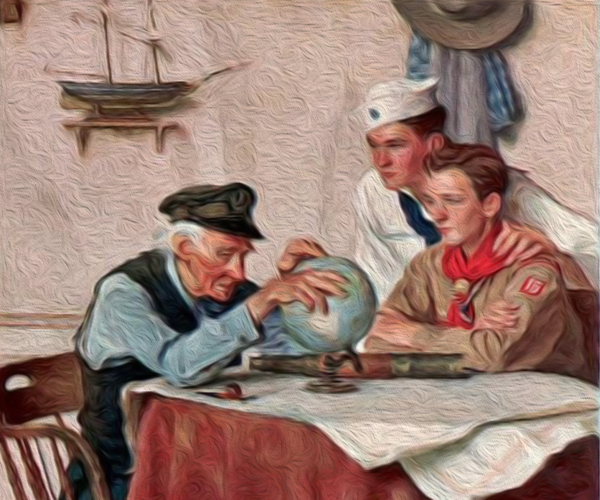
Understanding Military Terminology - Latest arrival date
(DOD) A day, relative to C-Day, that is specified by the supported combatant commander as the latest date when a unit, a resupply shipment, or replacement personnel can arrive at the port of debarkation and support the concept of operations. Also called LAD. Joint Publications 5-0 (Joint Operation Planning)
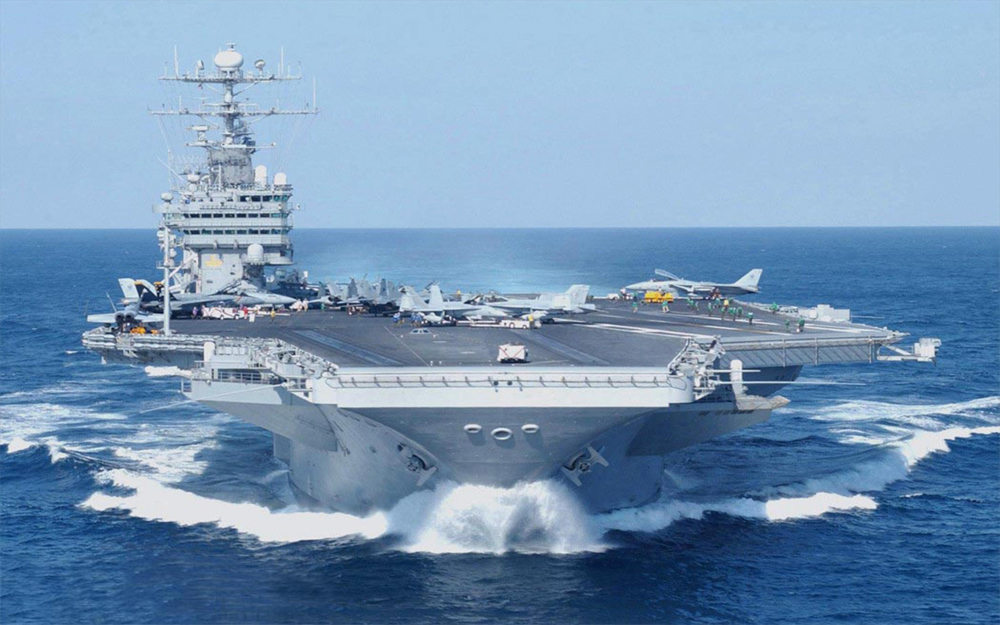
The Old Salt’s Corner
Briefing, debriefing, and reporting constitute the most important activities of the intelligence officer or enlisted intelligence specialist. It is highly probable that you will be involved in one or more of these activities in some aspect during the period of your AT-at-Sea. This module will review both the content and execution of the various types of briefs intelligence personnel are expected to perform. Taking the time to hone your skills in these areas will help to ensure you report aboard prepared to make a significant contribution from day one of your AT-at-Sea experience.
A. Briefing Topics
Briefs given by CVIC personnel center around a number of topics depending on the type of mission or task at hand. For example, briefs can be used to transmit information to decision-makers as well as describe a task, such as an air mission, that needs to be accomplished. Briefing duties center on, but are not limited to, the following types of subject matter:
-To be continued-
Molule 7 - Briefing, Debriefing, and Reporting

“I’m Just Sayin’”
Day light savings time - why are they saving it and where do they keep it?

“Thought for the Day”
“Success is how high you bounce when you hit bottom.
~ George S. Patton

“What I Have Learned”
“When you’re headed for trouble, take along a friend.”
~ Anonymous

Bizarre News (we couldn’t make up stuff this good – real news story)

Wrong Place, Wrong Time:
(1) A court in Lincoln, Neb., which had already sent Paul Boye to prison for at least 10 years for shooting his girlfriend, ordered him in June to cover her resulting medical bills. The woman had taken a .22-caliber bullet, which left a scar cutting right through her tattoo reading “Happiness Is A Warm Gun.”
(2) A task force of Benton, Ark., police and U.S. Marshals tracked down Tieren Watson, 26, in June after he had spent several days on the lam as a suspect in a shooting. When arrested, he was wearing a t-shirt reading “You Can Run. But You Can’t Hide.”
Lincoln Journal Star (06/13/2015)
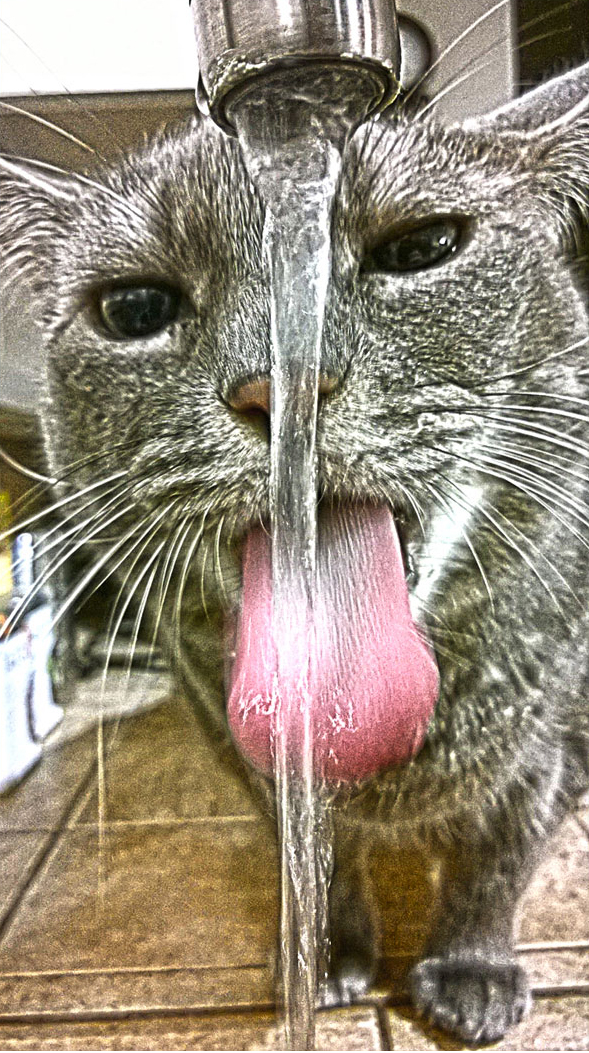
Mr. Answer Man Please Tell Us: Cats hate water and don’t pant so how do they cool themselves off?
When temperatures rise, humans sweat, dogs pant, cats...don't move enough to overheat? Well, partially. Cats, who need to maintain an internal body temperature of 101 to 102 degrees, have several methods for keeping cool in sweltering weather, just one of which involves knowing better than to over-exert themselves on hot days.
Conduction allows cats—or anything else—to cool themselves off or warm themselves up via contact with objects of a different temperature. This is why you can often find your cat seeking out cool kitchen tiles on a hot day. But this works for a dog or a person, too. What about when that's just not enough?
It's a misconception that cats sweat through their paws to cool themselves off. As summer wears on you might see moist paw-prints but, according to veterinarian Kimberly May, who spoke to the Washington Post, “any secretions there or from their nose, mouth or tongue are not for sweating; they’re for protection and moisture and are insufficient to cool the blood.”
Instead, cats recreate the sweating process—which works to cool humans via evaporation—by grooming themselves regularly. The saliva from their tongues acts like sweat that cools their body when it evaporates. In extreme weather, cats will also pant. But unlike dogs who pant regularly to keep themselves cool, a panting cat is a sign of more dangerous over-heating or other serious disease.
And if you're tempted to shave your feline friend to help keep him cool, don't!
“Fur acts as a thermal regulator to slow down the process of heat absorption”, says James H. Jones, an expert in comparative animal exercise physiology and thermoregulation at University of California at Davis.
Fur coats are highly evolved—in the winter they keep animals warm but in the summer they work both to protect delicate skin from the sun and slow dehydration (according to research, shaved camels fared worse in the deserts than those with their fur intact).
But even with these methods for keeping cool, cats also rely on the perks of domesticity to stay comfortable. So even though they evolved from wild ancestors and are able to tough it out, leave the AC (or a fan) on for your cats when you go out.
Cat Health
• The Daily Cat
• Way of Cats
• Mental Floss
• The Guardian UK
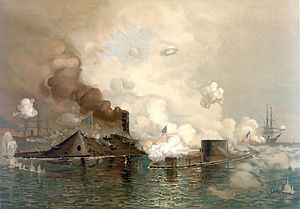
Where Did That Saying Come From?
“Ironclad Contract:” This came about from the ironclad ships of the Civil War. It meant something so strong it could not be broken.
Vocabulary / Wikipedia
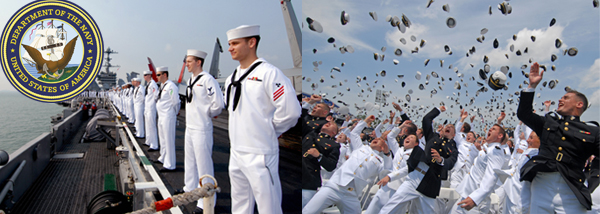
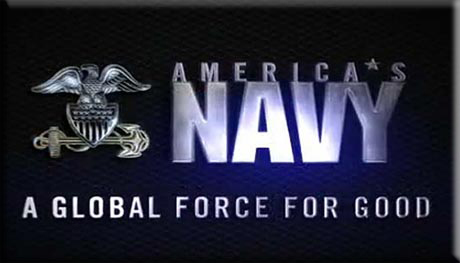
NAVSPEAK aka U.S. Navy Slang
Death Pucks: Hamburger Patty.
Haji: Anything Middle Eastern in origin.
Piece: Rifle, as used in manual-of-arms (rifle drill).
Piss Test: “Whiz Quiz”) or urinalysis. See Operation.
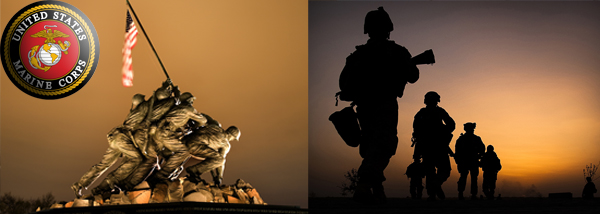
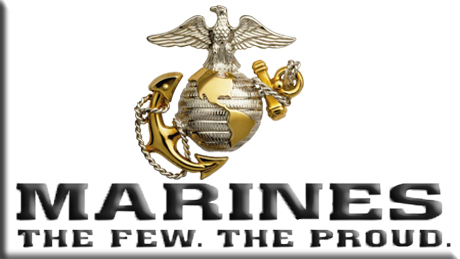
Just for you MARINE
Gear Adrift: Anything not properly stowed, tied down or otherwise secured. A messy room or bunk.
Geedunk: A snack bar on ship. Any place that candy and pogey bait are sold.
Geeters: (Vietnam) Money.
General: Highest rank in the Marine Corps. The Commandant of the Marine Corps is a general. The pay grade is O-10 and is designated by four silver stars worn on collar points. The rank is the same in the Army and Air Force. In the Navy the rank is admiral and is additionally designated by a two inch gold band and four one inch gold bands topped by a star on the jacket sleeves. The shoulder boards are mostly gold with a silver fouled anchor and four silver stars.

Naval Aviation Squadron Nicknames
VT-21 - Training Squadron 21: “Redhawks”
NAS Kingsville, Texas
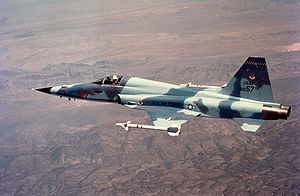
Aircraft Nicknames
F-5 nicknamed “Freedom Fighter, Skoshi Tiger, Dinky Toy” The Northrop F-5A/B Freedom Fighter and the F-5E/F Tiger II are part of a supersonic light fighter family, initially designed in the late 1950s by Northrop Corporation.
The design team wrapped a small, highly aerodynamic fighter around two compact and high-thrust General Electric J85 engines, focusing on performance and low cost of maintenance. Though primarily designed for the day air superiority role, the aircraft is also a capable ground-attack platform.
The F-5N/F variants are in service with the United States Navy and United States Marine Corps as an adversary trainer. Approximately 500 aircraft are still in service as of 2014. Northrop Grumman / Wikipedia

The Strange, Mysterious or Downright Weird
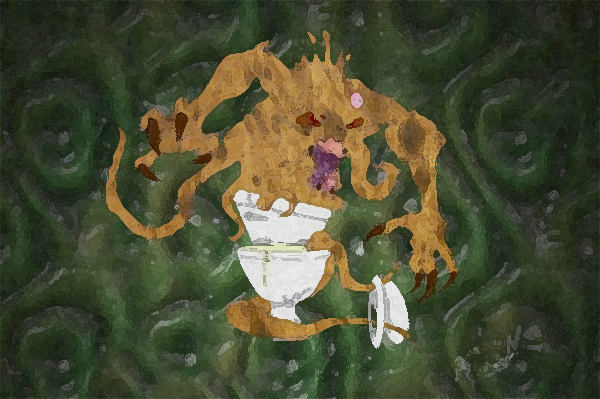
We are all familiar with the Roman gods of strength and the underworld and goddesses of beauty and knowledge and the likes. However, it’s highly unlikely you knew that the ancient Romans also had patron gods and goddesses for toilets and sewers. The sewer goddess, Cloacina, was considered the protector of Rome’s sewage system (which was rather good when you come to think of it), and was invoked when there were any problems involving the sewers.
They also had a toilet god - Crepitus – who played the dual role of also being the god of flatulence: he was prayed to when an individual suffered from diarrhea and constipation.
Additionally, there was a god of dung, called Stercutius, who was worshipped by farmers while fertilizing their fields.
Wikipedia

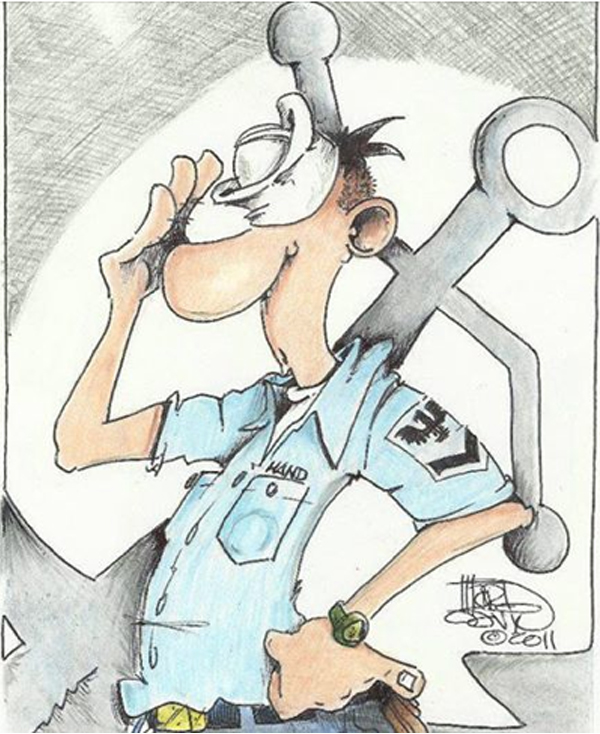
SONG FACTS

“Don't Bring Me Down” - Electric Light Orchestra
Album: Discovery
Released 1979 
This was the first ELO song that did not use strings. After recording it, they fired their string section, leaving 4 members in the band.
This is the highest charting ELO hit in both the UK and US, although ELO's “Xanadu”  collaboration with Olivia Newton-John did hit #1 UK.
collaboration with Olivia Newton-John did hit #1 UK.
ELO leader Jeff Lynne wrote this song late in the sessions for the Discovery album. He came up with the track by looping the drums from a song he recorded earlier in the session, then coming up with more music on the piano. The words came last, as Lynne put together some lyrics about a girl who thinks she's too good for the guy she's with.
As a little joke, Lynne put a count-in at the beginning of the song, even though there was nobody he was counting in.
This turned out to be a good theme song for astronauts enjoying their time in space. The song was played to astronauts on the Space Shuttle Columbia as their wake up call on July 6, 1996 - they were in flight longer than expected because of bad weather on the ground. ELO's record company also tried to tie in the song with the Skylab space station, which crashed to Earth on July 11, 1979 after 6 years in space. They placed ads in trade magazines promoting the new single “Don't Bring Me Down”  by dedicating it to Skylab.
by dedicating it to Skylab.
Electric Light Orchestra official site / All Music / Billboard / Song Facts / Wikipedia
Image: “Discovery (album)” by Electric Light Orchestra

Trivia
● “Salmonella” gets its name from Daniel Elmer Salmon, a veterinary pathologist who ran a USDA microorganism research program in the 1800s.
● The first fielding gloves in baseball were flesh-colored so that fans wouldn't notice that the players were wearing them.
● The Caesar Salad was not invented by the Italians, but by a restaurant owner in Tijuana, Mexico.

A Test for People Who Know Everything
Why is the abbreviation for pound “lb”?
● Answer for People Who Do Not Know Everything, or Want to Verify Their AnswerMental Floss
Answer to Last Week's Test
The string attached to boxes of animal crackers was originally placed there for what reason?
Answer: So that the container could be hung from the branches of a Christmas tree. Kitchen Daily

Joke of the Day
This old man visits his doctor and after a thorough examination, the doctor tells him, “I have good news and bad news, what would you like to hear first?”
Patient: “Well, give me the bad news first.”
Doctor: “You have cancer, I estimate that you have about two years left.”
Patient: “That's terrible! In two years, my life will be over! What kind of good news could you probably tell me, after this?”
Doctor “You also have Alzheimer's. In about three months you are going to forget everything I told you.”


























